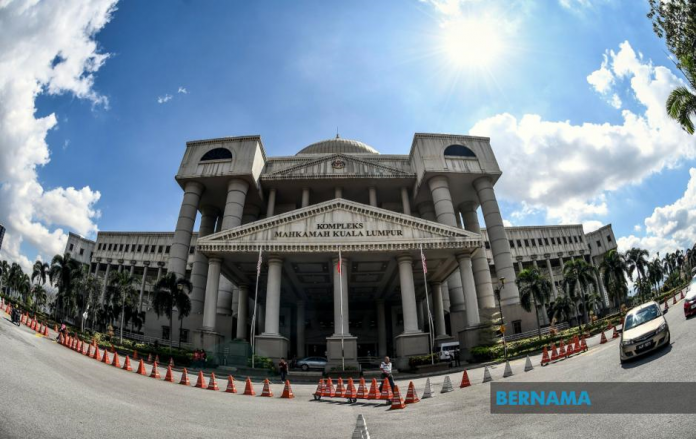KUALA LUMPURThe High Court here today ruled that the Yang di-Pertuan Agong’s proclamation and the ordinances enacted under the emergency law cannot be challenged in any court of law.
Judge Datuk Ahmad Kamal Md Shahid said this was provided for under Article 150(8) of the Federal Constitution which among others states that the Yang di-Pertuan Agong’s decision over proclamation of emergency shall be final and conclusive and shall not be challenged or called in question in any court on any ground.
The judge made the ruling after dismissing the leave application for a judicial review brought by three elected representatives to challenge Tan Sri Muhyiddin Yassin’s move to advise the Yang di-Pertuan Agong to suspend Parliament and state assembly sittings during an emergency.
The trio were Simpang Jeram assemblyman and Pulai MP Datuk Seri Salahuddin Ayub, Gurun assemblyman and Sungai Petani MP Datuk Johari Abdul and Tebing Tinggi assemblyman Abdul Aziz Bari.
In their application, they named the Prime Minister and the Malaysian Government as the respondents.
Justice Ahmad Kamal also held that the application by the three applicants to challenge the King’s decision over proclamation of emergency was not amenable to judicial review.
“It is reiterated that Article 150(8) of the Federal Constitution is valid and constitutional. More importantly, Article 150(8) of the Federal Constitution has shut the court’s doors from any challenge or application be made against the proclamation and the ordinances enacted under the emergency law,” the judge said.
He also said that based on his findings of Article 150(8) of the Federal Constitution, no judicial review can be made to challenge the decision of the King under Article 150(1) and Article 150(2B) of the same Constitution.
“In fact, this issue had been decided by the Federal Court in Datuk Seri Anwar Ibrahim v Public Prosecutor,” he said.
Justice Ahmad Kamal further said that there was nothing in the Federal Constitution that imposed a legal duty on the first respondent (Muhyiddin) to act in the manner dictated by the applicants.
“Hence, in the absence of any legal duty imposed on the first respondent, the applicants’ pleaded reliefs are misconceived in law,” he said.
— BERNAMA


